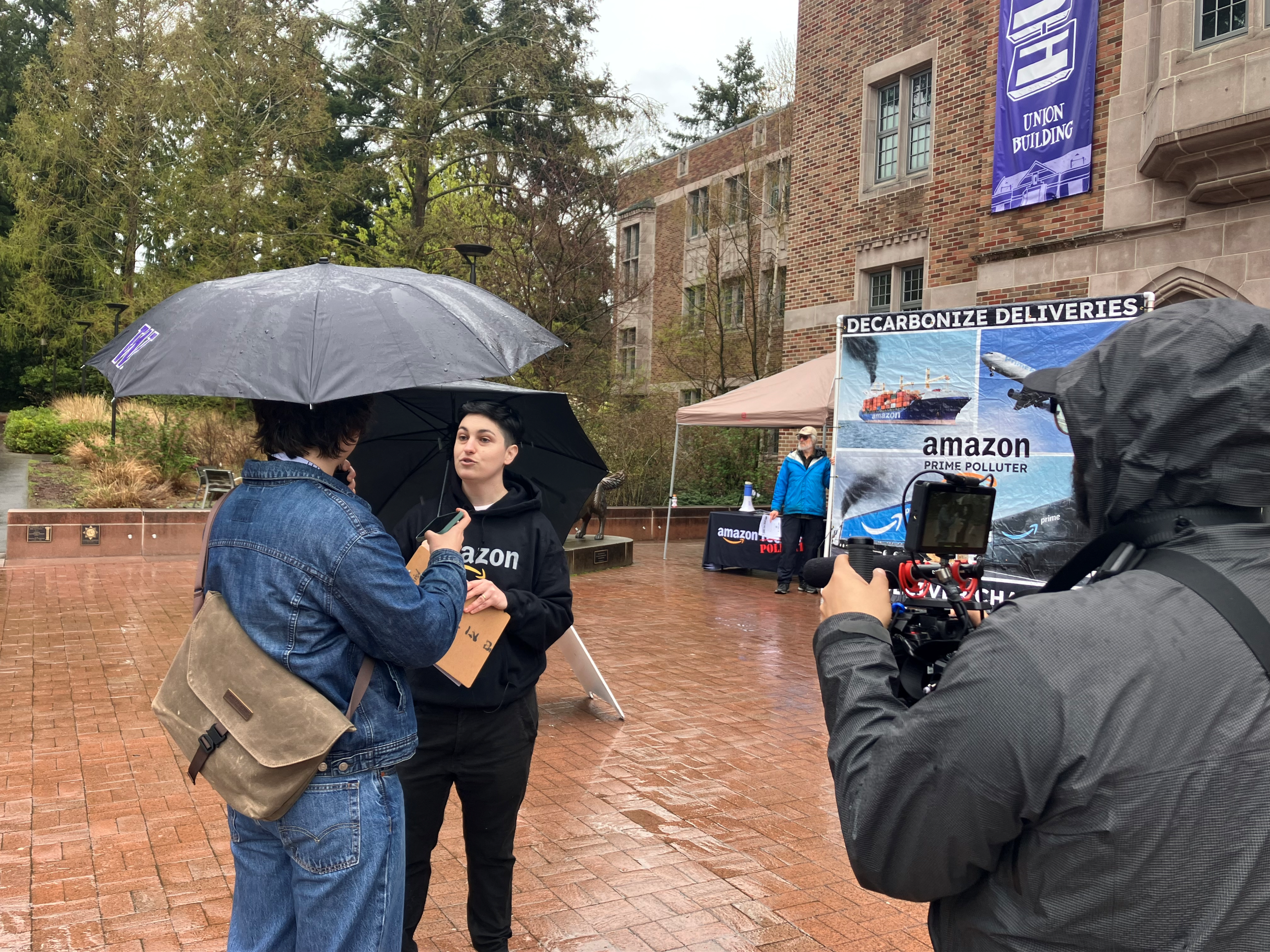


Over 35,000 advocates nationwide have demanded Target Ship It Zero by 2030
MINNEAPOLIS (June 8, 2022) – During Target Corporation’s annual general meeting, residents of the largest maritime port in the United States challenged Target’s use of heavily-polluting fossil-fueled ocean cargo ships, and called on the company to transition to zero-emissions cargo ships by 2030. With dire warnings from the latest IPCC climate report, now is the time to set sail on zero-emissions ocean cargo shipping and end human dependence and use of fossil fuels.
Residents and leaders from the West Coast, where Target disproportionately contributes to the port pollution crisis, submitted questions during Target’s annual general meeting to get answers about Target’s lack of action on its ocean shipping pollution problem. But, with 15 minutes left in the meeting, Target ended the call – leaving unanswered questions for port residents. See here for the full statements submitted to Target.
“Target is clearly committed to set a high standard and use its size and scale to drive change throughout its supply chain,” said Naya Shah, CSULB Environmental Science and Policy Club member. “Yet Target ships billions of dollars of merchandise across thousands of miles of ocean on cargo ships that pollute our air, water, climate, and communities. Communities like Long Beach.”
The Ship It Zero Coalition also submitted a petition signed by 35,622 advocates calling on Target to “Ship It Zero by 2030.”
“People are already being harmed and killed by fossil fueled climate change and air pollution. Time is of the essence and the science is clear. The world must stop burning gas, oil and coal to save as many lives as possible from the deadly impacts of fossil fueled climate change. Impacts from fossil fueled climate change are already harming people today and are getting worse. We must rapidly phase out the use of fossil fuels that cause deadly local air pollution and heat our planet into dangerous temperature ranges,” said Dr. Heather Price, climate scientist.
Target should be leading efforts to phase out the use of fossil fuels in its maritime shipping and drive the investment and a transition to the zero emissions fuels and technologies for marine vessels that are so urgently needed. Target and other retail giants have enormous power to catalyze the rapid decarbonization of the international ocean cargo shipping industry. These companies must leverage their power as major importers and clients of cargo shipping companies by committing to zero emissions shipping. This creates the market demand for fossil-free maritime shipping.
“Target’s maritime shipping impacts our air, water, climate and port communities. Living near the Port in Long Beach, CA, I see the giant container ships spewing smoke and pollution that I breathe in. The massive cargo ships loaded with merchandise bound for Target retail stores emit tens of thousands of metric tons of air pollutants annually, including Sulphur Dioxide, Nitrous Oxide, black carbon, and carbon monoxide. These pollutants put the health of port communities at risk, with increased rates of premature deaths from cancer and cardiovascular disease, as well as childhood asthma. The technology for zero emissions shipping exists, but needs to be brought to scale. That requires demand for renewables, and an investment. It requires leadership. Target’s lack of leadership today is an injustice to the leaders of tomorrow,” said Jayden Maree, CSULB Climate Action Team Club member.
Most cargo vessels currently rely on the dirtiest option to fuel their ships: heavy fuel oil or lower-sulfur heavy fuel oil blends. HFO is a waste product of the world’s ocean refineries and is a tar-like substance containing asthma and cancer-causing air pollutants including particulate matter. It is a bottom-of-the-barrel fuel and, as a result, is dirt-cheap. Communities near ports are paying with their health and lives for these companies’ decision to use ultra-dirty, cheap fuel, rather than currently available cleaner marine fuels.
“Target’s ships rely on the dirtiest fossil fuels in the world,” said Dawny’all Heydari, Lead of the Ship It Zero Campaign at Pacific Environment. “We call on Target to be a good neighbor and commit to 100% zero-emissions ocean shipping this decade. The IPCC climate report warnings are dire: it’s ‘now or never’ to address climate change. Target must lead the way to a clean future and stop polluting our ocean and the nearby port communities.”
“Target is lagging behind its competitors on tackling its massive maritime shipping pollution problem, and its pollution from ocean shipping is completely out-of-step with its purported commitment to equity, justice, and the health of families and children. The pollution from Target’s imports into the US are causing real harm to real human beings living in port communities, the most vulnerable of which are kids. Target must commit to immediately end its port pollution and commit to 100% zero emissions maritime shipping by 2030,” said Kendra Ulrich, Shipping Campaigns Director and Lead of the Ship It Zero Campaign at Stand.earth.
ABOUT SHIP IT ZERO
The Ship It Zero campaign, led by environmental advocacy organizations Stand.earth and Pacific Environment, is calling on some of the nation’s largest maritime importers — including Target, Amazon, IKEA, and Walmart — to transition to 100% zero-emissions cargo shipping vessels by 2030. This goal will ensure the shipping industry does its fair share in helping to keep global warming under 1.5 degrees Celsius, the target scientists say is needed to avoid the worst consequences of the climate crisis.
Target has been notably missing from other industry initiatives joined by retail giants like Amazon, including the coZEV coalition and U.S. President Biden’s First Movers Coalition. Target’s pandemic-era port pollution has been covered in CNN, Business Insider, and NPR.
In December 2021, the Ship It Zero campaign hosted a press conference on Target’s ocean shipping pollution near the company’s headquarters in Minneapolis, featuring three Minneapolis City Council members and two faith leaders.
Learn more at shipitzero.org. For more information about Target and the shipping industry, read additional information here.

Recent Updates





